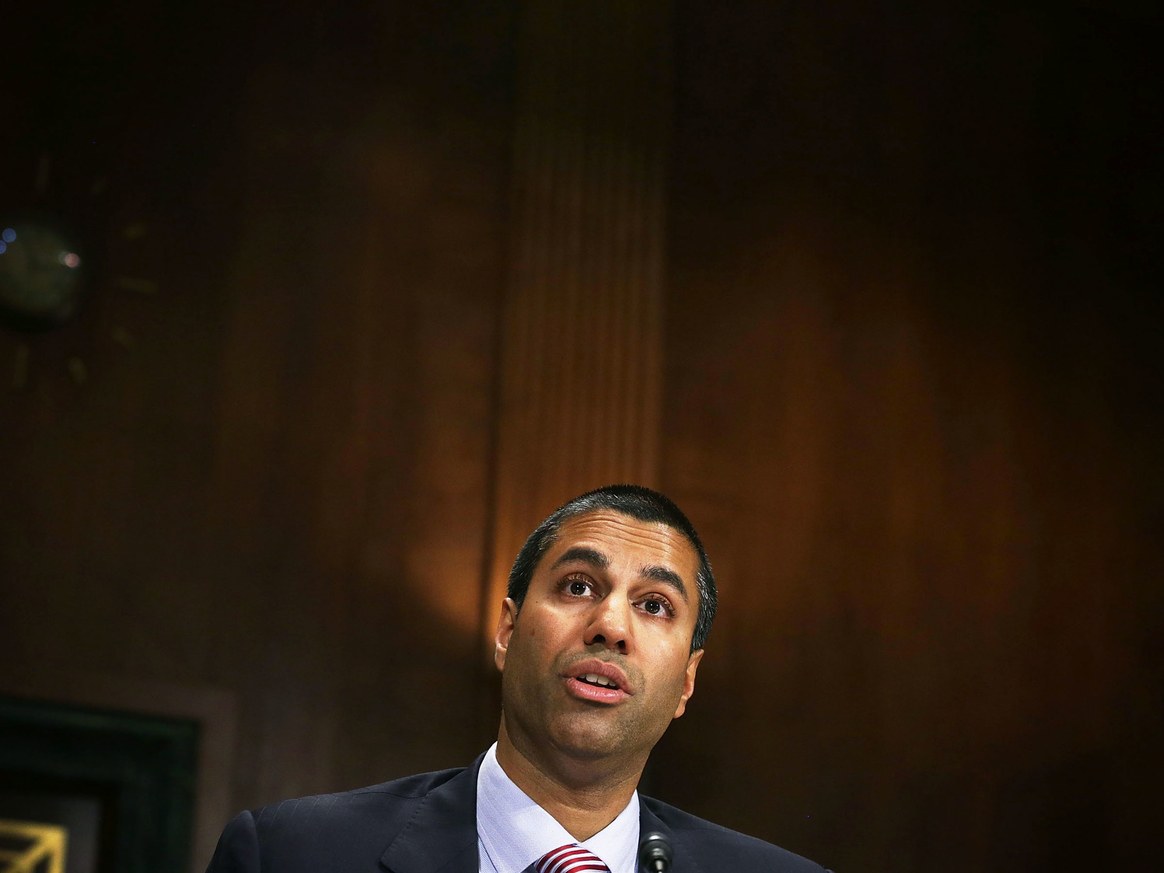
Ajit Pai, THE new chairman of the FCC, doesn’t like the net neutrality rules enforced by the agency President Trump named him to lead.
“The FCC decided to apply last-century, utility-style regulation to today’s broadband networks,” Pai said during a speech at Mobile World Congress in Barcelona, Spain.
“Rules developed to tame a 1930s monopoly were imported into the 21st century to regulate the Internet. This reversal wasn’t necessary to solve any problem; we were not living in a digital dystopia.”
The new Republican chairman, speaking just two days after the two-year anniversary of the landmark Open Internet Order, pledged to approach regulation with a “light-touch” approach. He said the rules have stifled economic growth and investment in the broadband industry.
“But today, the torch at the FCC has been passed to a new generation, dedicated to renewal as well as change,” he said. “We are confident in the decades-long, cross-party consensus on light-touch internet regulation — one that helped America’s digital economy thrive. And we are on track to returning to that successful approach.”
In the little over a month since being tapped as chair, Pai has already gone to work chipping away at the rules enshrining net neutrality. Those rules prohibited internet service providers from discriminating against traffic to certain websites.
Conservatives like Pai were angry that the rules reclassified service providers as common carriers, allowing the FCC to regulate them like public utilities.
Democrats have been mobilizing to defend net neutrality, which they see as crucial for preserving free speech and encouraging innovation.
On Monday, Mignon Clyburn, the lone Democrat on the FCC, told activists on Capitol Hill that she was committed to fighting Republican efforts to dismantle the rules.
“Now it is time for us to once again roll up our sleeves and fight for the protections embodied in the Open Internet Order, that are designed to ensure that the internet remains an open platform, that enables free speech, freedom of expression and the ability for innovation to flourish,” she said at an event commemorating the anniversary of the rules.
Earlier this month, Pai ended an FCC investigation into “zero-rating” services offered by companies like AT&T and Verizon that give consumers free data when they use certain apps or programs.
On Tuesday, Pai said that his move led to providers putting forth new unlimited data offerings.
“The best evidence of the wisdom of our new approach is what happened afterward,” he said. “In the days following our decision, all four national wireless providers in the United States announced new unlimited data plans or expanded their existing ones. Consumers are now benefiting from these offers — offers made possible by a competitive marketplace.”
In addition to opposing net neutrality, Pai has riled Democrats with his efforts to roll back other regulatory that were pushed through during the Obama administration.
He revoked nine companies from a program that subsidized internet access for low-income families, announced his intention to stay a rule requiring service providers to take “reasonable” measures to protect consumer data, and instructed the FCC’s general counsel to drop its defense in a court case challenging the commission’s rules capping prison phone call rates.
Matt Wood, policy director at the advocacy group Free Press, issued a lengthy statement Tuesday blasting Pai for his claims about the effect the Open Internet Order has had on the industry and calling into question his commitment to expanding internet access to underserved communities.
“Chairman Pai wants people to believe that he’s a champion for more open and affordable broadband,” Wood said in the statement.
“The actions he’s taken since becoming chairman last month show he’s anything but. Using the exact same kind of unilateral power plays he previously decried in other chairmen, he’s made it far more difficult for low-income families to take advantage of a program that makes broadband access more affordable.”
Still, Pai is selling his “light-touch” approach as the best way to foster innovation and promote broadband access to low-income households and rural communities.
“In short, America’s approach to broadband policy will be practical, not ideological. We will embrace what works and dispense with what doesn’t,” he said Tuesday.













